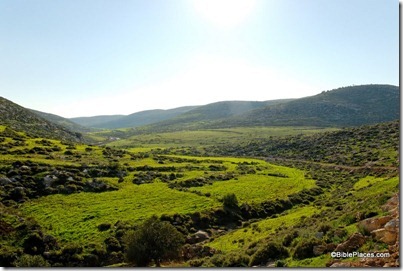Strafor Global Intelligence has an interesting analysis of how Israel’s geographical realities have affected its political situation in biblical times as well as today. It’s an interesting read. The article begins:
The founding principle of geopolitics is that place — geography — plays a significant role in determining how nations will behave. If that theory is true, then there ought to be a deep continuity in a nation’s foreign policy. Israel is a laboratory for this theory, since it has existed in three different manifestations in roughly the same place, twice in antiquity and once in modernity. If geopolitics is correct, then Israeli foreign policy, independent of policymakers, technology or the identity of neighbors, ought to have important common features. This is, therefore, a discussion of common principles in Israeli foreign policy over nearly 3,000 years.
The article discusses the importance of the Levant as a land bridge:
The Levant in general and Israel in particular has always been a magnet for great powers. No Mediterranean empire could be fully secure unless it controlled the Levant. Whether it was Rome or Carthage, a Mediterranean empire that wanted to control both the northern and southern littorals needed to anchor its eastern flank on the Levant. For one thing, without the Levant, a Mediterranean power would be entirely dependent on sea lanes for controlling the other shore. Moving troops solely by sea creates transport limitations and logistical problems. It also leaves imperial lines vulnerable to interdiction — sometimes merely from pirates, a problem that plagued Rome’s sea transport. A land bridge, or a land bridge with minimal water crossings that can be easily defended, is a vital supplement to the sea for the movement of large numbers of troops. Once the Hellespont is crossed, the coastal route through southern Turkey, down the Levant and along the Mediterranean’s southern shore, provides such an alternative.
There is much more, and I recommend the article to students of geography. I might also point out a few critical geopolitical principles that the author neglected to mention.
“Woe to those…who do not look to the Holy One of Israel…the Egyptians are men and not God” (Isaiah 31:1).
“If you fully obey the Lord your God…the Lord will grant that the enemies who rise up against you will be defeated before you” (Deut 28:1,7).
